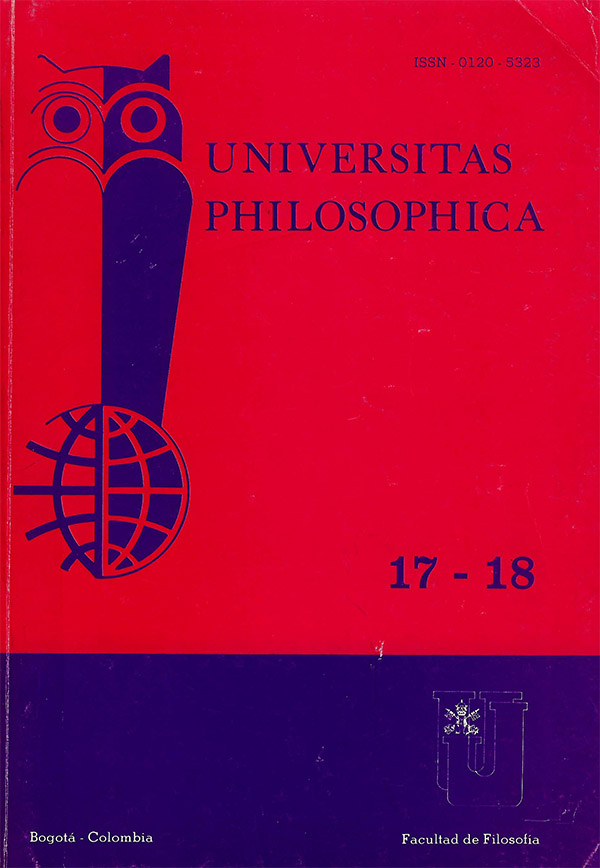Resumen
Este trabajo examina la relación entre la filosofía y el problema de la identidad cultural en América Latina. Pareciera, a simple vista, que nos hallamos frente a dos temas completamente diferentes. Resulta claro que la incorporación de América a Occidente, ocurrida hace quinientos años, ha estado plagada de ambigüedades y contradicciones que han dado lugar a la pregunta por lo autóctono, lo auténtico y lo conforme a las raíces. Pero, ¿qué tiene que ver todo esto con la filosofía? En tanto que quehacer formalmente universal, ¿qué puede decir ella sobre un problema de carácter empírico como lo es la identidad latinoamericana? ¿No le correspondería esto, más bien, a otros campos del saber como la etnología, la sociología o la psicología cultural? Sin embargo, examinadas las cosas más de cerca, nos daremos cuenta que tal disyuntiva sólo tiene sentido en la medida en que aceptamos a priori una cierta manera de filosofar que ha sido definida desde los países centrales de Occidente. Convendría mostrar, entonces, en qué medida puede hablarse de una filosofía que, liberada del abstraccionismo propio del pensamiento europeo, sea capaz de pensar la realidad latinoamericana desde una perspectiva propia. De ahí que el tipo de filosofía al que haremos referencia aquí echa sus raíces en la producción ensayística realizada en América Latina una vez consumada la gesta emancipadora y que se extiende a todo lo largo del siglo XIX y se refleja en el pensar dado desde América Latina en este siglo.Esta revista científica se encuentra registrada bajo la licencia Creative Commons Reconocimiento 4.0 Internacional. Por lo tanto, esta obra se puede reproducir, distribuir y comunicar públicamente en formato digital, siempre que se reconozca el nombre de los autores y a la Pontificia Universidad Javeriana. Se permite citar, adaptar, transformar, autoarchivar, republicar y crear a partir del material, para cualquier finalidad (incluso comercial), siempre que se reconozca adecuadamente la autoría, se proporcione un enlace a la obra original y se indique si se han realizado cambios. La Pontificia Universidad Javeriana no retiene los derechos sobre las obras publicadas y los contenidos son responsabilidad exclusiva de los autores, quienes conservan sus derechos morales, intelectuales, de privacidad y publicidad.
El aval sobre la intervención de la obra (revisión, corrección de estilo, traducción, diagramación) y su posterior divulgación se otorga mediante una licencia de uso y no a través de una cesión de derechos, lo que representa que la revista y la Pontificia Universidad Javeriana se eximen de cualquier responsabilidad que se pueda derivar de una mala práctica ética por parte de los autores. En consecuencia de la protección brindada por la licencia de uso, la revista no se encuentra en la obligación de publicar retractaciones o modificar la información ya publicada, a no ser que la errata surja del proceso de gestión editorial. La publicación de contenidos en esta revista no representa regalías para los contribuyentes.


